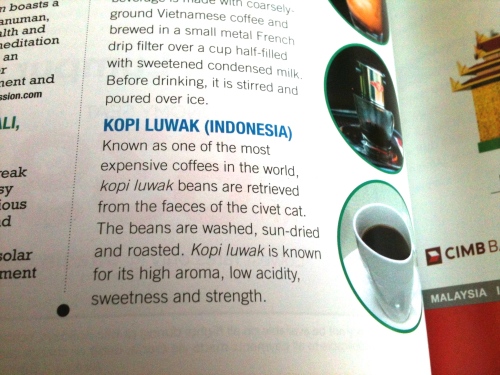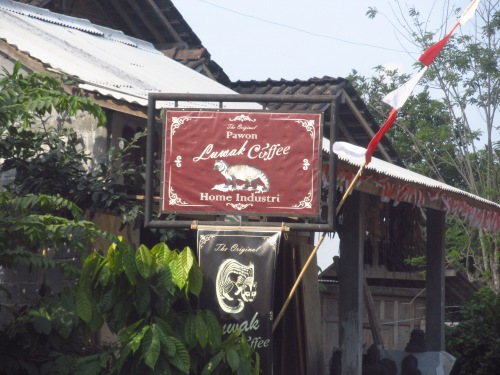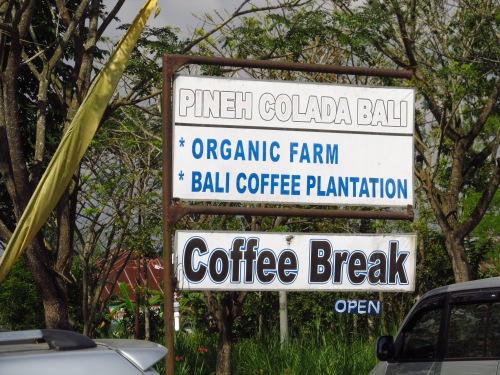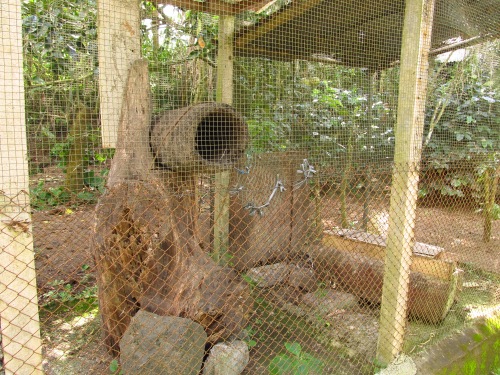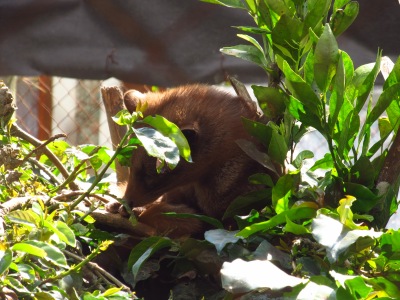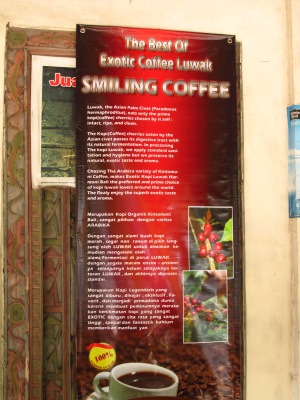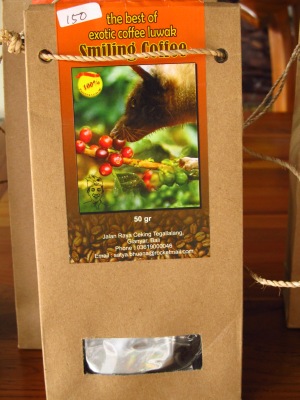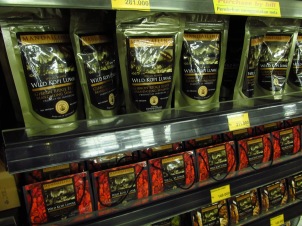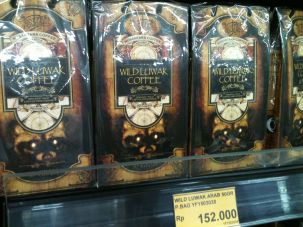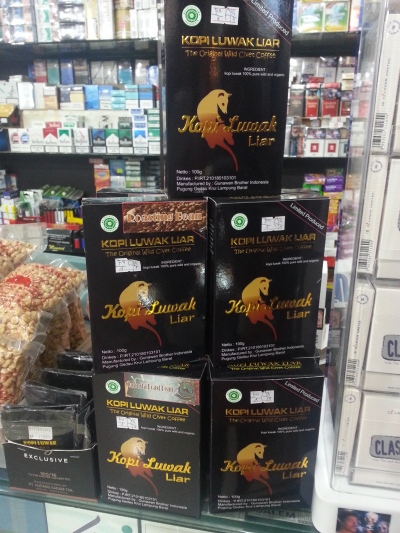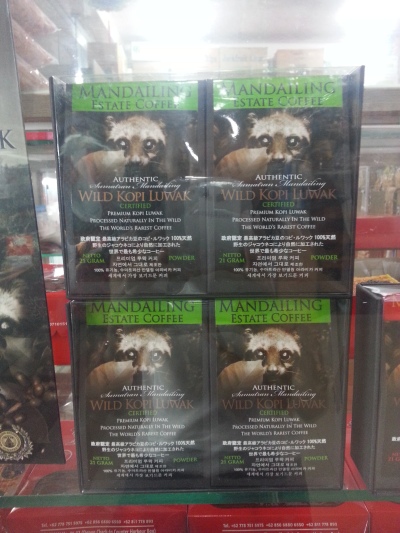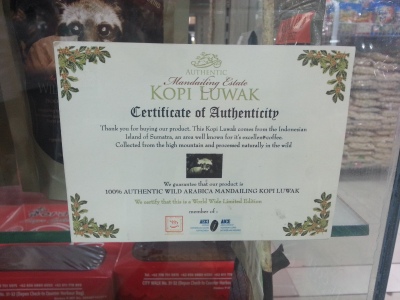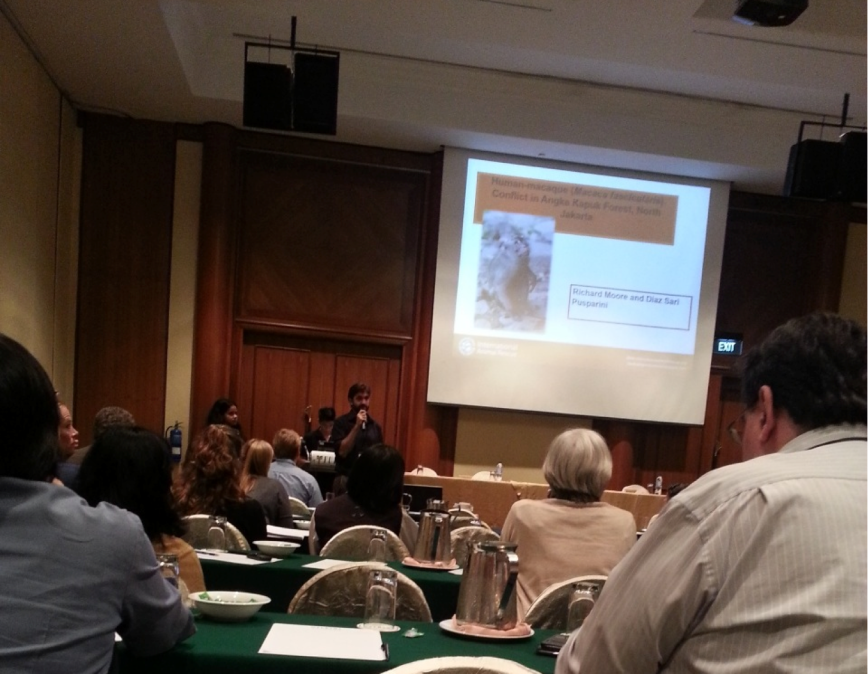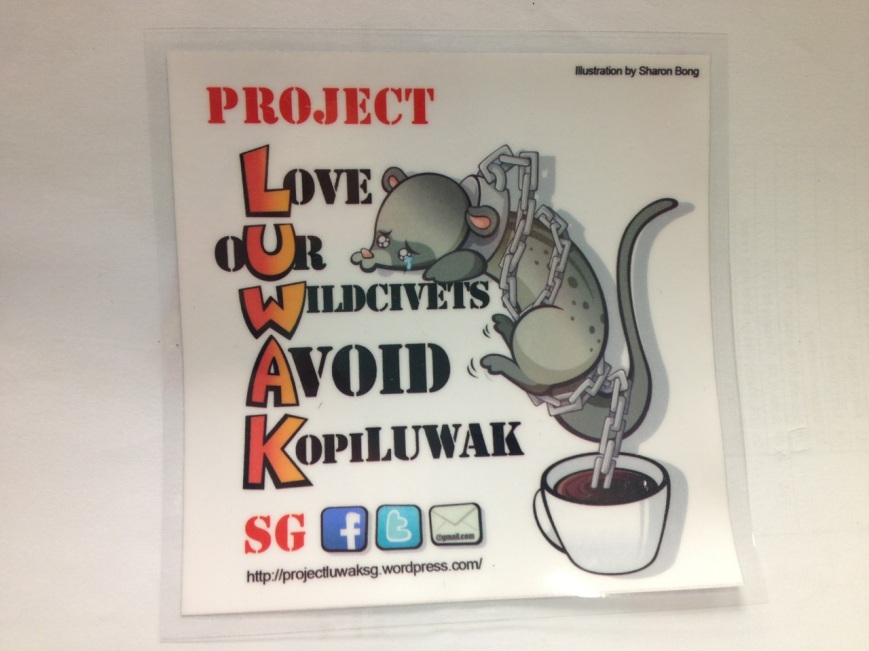By Joys Tan
While travelling in Indonesia late last year (Aug – Dec 2014), Henrietta and I chanced upon the sale of kopi luwak in various places separately. Here are some pictures taken by us:
1. Central Java
On flight to Indonesia, Henrietta noticed an advertisement of kopi luwak in the magazine. It wasn’t unexpected as Indonesia is its place of origin.
2. Bali
Bali has numerous coffee plantations and agro-tourism centred around them are heavily marketed with a seemingly high take-up rate among tourists. Read about the Pearlynn’s recount at a kopi luwak farm in Bali early last year here.
What first struck me was the obvious lack of vegetation cover for the civet to hide and lack of branches for the civet to climb or sleep on.The floor was concrete, bare and covered with what appears to be algae. Nearby, a civet was spotted exposed and resting on sparse vegetation cover, with sunlight shining directly onto it. Civets are nocturnal animals and in a natural setting, they would seek out a sheltered place to rest.
Just one of the many sellers, the name ‘Smiling Coffee’ is pretty ironic.
Kopi luwak is (unfortunately) widely sold in the big supermarket at Ubud and at the airport.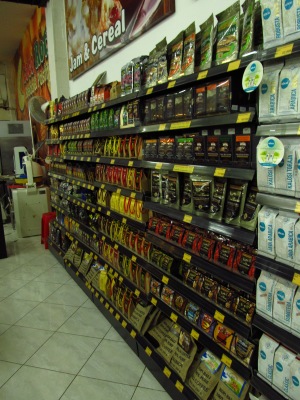
3. Batam
Also in Batam, kopi luwak was spotted in a provision store near the ferry terminal. There are two brands on the shelf: Mandailing Estate Coffee and Gunawan Brother Indonesia.
Mandailing Estate Coffee states that it produces “authentic wild kopi luwak“, “certified premium kopi luwak” and “processed naturally in the wild” on its packaging. It even had a ‘Certificate of Authenticity’ attached. Regardless of how awesome it sounded, I was not convinced at all. After some research, I knew my intuition was right – it is not true at all.. In the campaign document published by Tony Wild, the founder of Kopi Luwak: Cut the Crap, it stated that:
